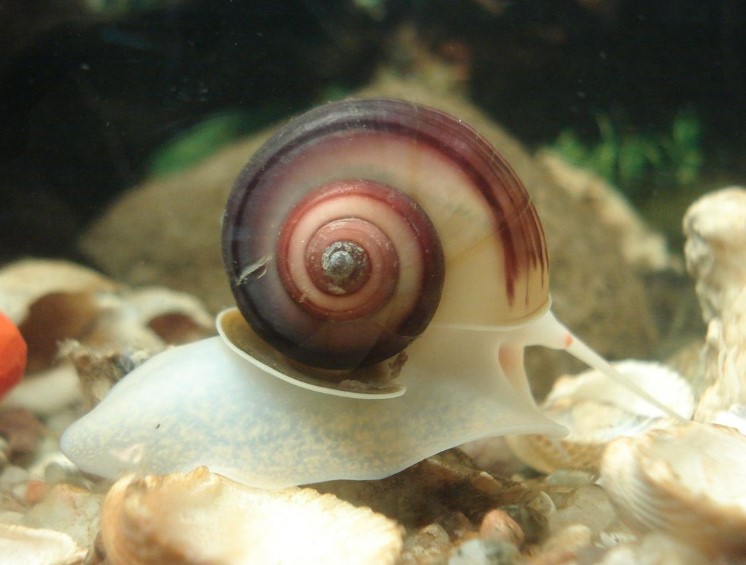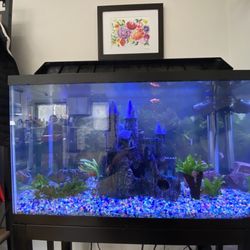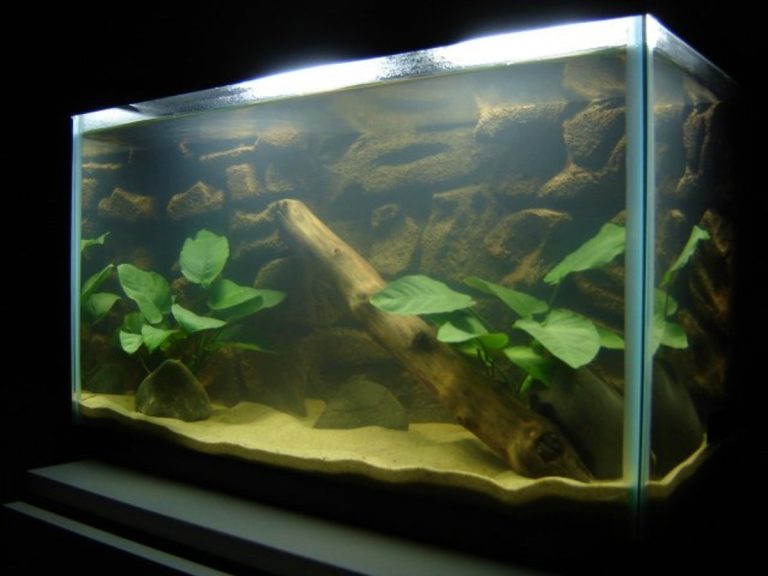How to Find the Perfect Aquarium for Your Home: A Comprehensive Guide
To choose the right aquarium, consider the size and type of fish you want to keep. Aquariums are a beautiful addition to any home or office, but choosing the right one can be overwhelming.
Whether you’re a beginner or have been keeping fish for years, selecting the appropriate aquarium is crucial for the health and happiness of your fish. Factors such as size, type of fish, and budget must be taken into account. This guide will provide tips and advice on how to choose the right aquarium to create a peaceful and enjoyable environment for your aquatic pets.

Credit: minipricestorage.com
The Benefits Of Owning An Aquarium
Aquariums are not only lovely to look at; they are also beneficial in many ways. If you are looking for a new hobby that can add some beauty, create a relaxing environment or teach children about aquatic life; owning an aquarium can offer all these benefits.
In this blog, we will discuss the advantages of owning an aquarium and how to choose the right one for you.
Aesthetically Pleasing Addition To Your Home
An aquarium can be an excellent addition to your home decor. It can be set up in a variety of ways that complement your home’s style and enhance the beauty of your living space. Here are a few factors to consider when choosing an aquarium:
- Aquarium size: Make sure the size of your aquarium is appropriate for the space where you plan to keep it. Consider the dimensions of your room, the furniture arrangement, and the traffic flow.
- Type of aquarium: Choose from a range of aquarium types, including freshwater, saltwater, or reef aquariums. Each type of aquarium has unique care requirements and considerations.
- Lighting: Proper aquarium lighting can make a significant difference in the appearance of your aquarium. Led lighting has become a popular choice due to their energy efficiency and long lifespan.
Relaxing Effect And Stress-Reducing Qualities
Watching fish swimming in an aquarium can have a calming effect, reducing stress and anxiety levels. The sound of flowing water and the colorful, rhythmic motion of the fish can create a peaceful and tranquil atmosphere. Here are a few tips to enhance the relaxation benefits of your aquarium:
- Make sure the water in your aquarium is clean and balanced, ensuring the fish are healthy and vibrant.
- Incorporate aquatic plants and decorations. These can create a more natural environment, mimicking the fish’s habitat in the wild.
- Choose appropriate fish species for your aquarium. Some species are known for their active behavior, which can provide excitement and mental stimulation, while others are more peaceful and calming.
Educational Opportunities For Children
Aquariums offer a unique learning opportunity for children. They can observe fish behavior, learn about aquatic habitats, ecosystems, and water chemistry. Here are a few things you can do to create an educational experience for children:
- Involve children in setting up the aquarium, and explain the importance of each step in the process.
- Use the aquarium as an opportunity to teach children about the water cycle, chemistry, and temperatures. This can help them understand the importance of water conservation.
- Showcase different species of fish and their unique behavior, characteristics, and habitats. This can spark curiosity and encourage children to explore further.
The Therapeutic Benefits Of Watching Fish In Motion
Watching fish swim in an aquarium can be therapeutic, reducing stress and anxiety and providing an overall calming effect. Here are a few things you can do to enhance the therapeutic benefits of your aquarium:
- Set up an aquarium in your office to reduce stress and improve productivity. A well-maintained aquarium can have a positive impact on the work environment.
- Consider incorporating a fish tank in healthcare facilities, such as hospitals and clinics. Studies have shown that aquariums can improve patient outcomes, such as reducing blood pressure and heart rate.
- Use the aquarium as a focal point for meditation and mindfulness activities. The calming effects of an aquarium can help to achieve relaxation and inner peace.
Overall, owning an aquarium is an excellent way to add beauty to your home, reduce stress, provide an educational experience, and promote relaxation and well-being. With careful consideration of your needs and preferences, you can choose the right aquarium that will provide enjoyment for years to come.
Considerations Before Buying An Aquarium
Available Space In Your Home
Choosing the right aquarium largely depends on the available space in your home. Consider the following:
- Measure the space where you want to keep the aquarium. Ensure that the tank fits in well and still allows enough room to move around.
- Ensure there is enough space to keep a stand or any other large aquarium accessories you may want to add in the future.
The Type Of Fish You Want To Keep
Different types of fish have different requirements. Before buying an aquarium, research the types of fish you want to keep. Here are some key points to consider:
- The size of the fish you want to keep will determine the size and the shape of the aquarium.
- Some fish need a minimum size aquarium to thrive, and others require specific water conditions to survive.
- Consider the compatibility of different fish species.
The Time And Effort Required To Maintain An Aquarium
Keeping an aquarium is not as easy as it seems, and requires consistent maintenance to keep it clean and healthy. Here are some key considerations to keep in mind:
- A regular cleaning routine is essential to keep the aquarium clean and healthy.
- Proper food and nutrition for the fish is crucial, and feeding schedules should be regular.
- Water changes and other maintenance tasks such as regulating the temperature and ph level should be done weekly.
The Expenses Associated With Owning An Aquarium
Owning an aquarium can be expensive, and the cost depends on several factors. Here are some key points to consider:
- The cost of the tank itself, as well as all the accessories needed such as a filter, heater, lights, stand, and substrate.
- The cost of fish and other living organisms that will inhabit the aquarium.
- The cost of maintaining the aquarium such as water conditioners, food, and equipment.
Owning an aquarium is a rewarding experience but requires careful planning. Consider the available space in your home, the type of fish you want to keep, the time and effort required to maintain an aquarium, and the expenses involved before making your purchase decision.
Choosing The Right Type Of Aquarium For Your Home
Having an aquarium in your home is an excellent way to add a touch of tranquility and relaxation to your space. However, choosing the right type of aquarium can be a daunting task. With so many different types of aquariums available in the market, it can be challenging to decide which one is the best fit for your lifestyle and budget.
Here we discuss some of the key points that will help you choose the right type of aquarium for your home.
Freshwater Vs. Saltwater Aquariums
Before buying an aquarium, the first thing you must consider is whether you prefer a freshwater or saltwater aquarium. The type of aquarium you choose will ultimately depend on your personal preference and requirements. Here are some key points to consider:
- Freshwater aquariums are an affordable option for beginners, and freshwater fish are also less expensive than saltwater fish.
- Freshwater aquariums are easier to maintain than their saltwater counterparts, making them an appropriate choice for beginners.
- Saltwater aquariums require more maintenance, expertise, and investment than freshwater aquariums. However, some people choose saltwater aquariums because of their extensive selection of marine life and more beautiful colors.
Standard Vs. Custom Aquariums
After deciding the type of aquarium you require, you need to think about the size of the aquarium you want to keep in your home. The size and shape might depend on the space you have available and your budget.
Some key points to consider are:
- Standard aquariums come in specific sizes and shapes and are less expensive than custom-built aquariums.
- Custom-built aquariums provide you with the flexibility to design a tank that suits your space and individual needs. However, custom-built aquariums can be bulky and expensive.
Nano Vs. Large Aquariums
The size of the aquarium you choose depends on the space available in your home. Here are some of the key points to consider when choosing between nano and large aquariums:
- Nano aquariums are small in size and are best for people who want to keep a few fish and do not have much space available.
- Large aquariums are best for people who want to keep more fish and are willing to dedicate a more significant space for their aquariums.
Acrylic Vs. Glass Aquariums
Finally, when deciding on buying an aquarium, you must choose between glass and acrylic aquariums. Both materials have their pros and cons.
- Acrylic aquariums are scratch-resistant, lighter, and more robust than glass aquariums but are more prone to discoloration and can be expensive.
- Glass aquariums are less expensive, less prone to discoloration, and easier to clean, but are heavier and more prone to scratches in comparison to acrylic aquariums.
Choosing the right type of aquarium for your home boils down to your personal preference, lifestyle, budget, and space availability. Consider all the factors mentioned above, and you will make an informed decision when buying an aquarium.
Setting Up Your Aquarium
Once you have purchased your aquarium, it’s important to set it up correctly to ensure your fish can thrive in their new environment. Here are some key considerations to keep in mind when setting up your aquarium:
Selecting The Right Location
When choosing a location for your aquarium, consider the following:
- Choose a location away from direct sunlight, as this can cause fluctuations in temperature and encourage algae growth.
- Ensure that the location has a stable surface that can support your aquarium’s weight when filled with water.
- Avoid areas with high traffic, as this can stress out your fish.
Choosing An Appropriate Substrate
The substrate, or the material that covers the bottom of your aquarium, is important for maintaining the health of your fish. Here are some options:
- Gravel is a common and affordable option that comes in a variety of colors and sizes.
- Sand is ideal for bottom-dwelling fish, but can be more challenging to clean.
- Bare-bottom tanks are easy to clean and suitable for certain species of fish, but may not provide a natural environment.
Selecting The Proper Lighting
Lighting is essential for plant growth and can enhance the colors of your fish. Here are some things to consider:
- Determine the type of plants you want to keep in your aquarium, as this will affect the type of lighting you need.
- Led lights are energy-efficient and customizable, allowing you to adjust the brightness and color temperatures.
- Avoid using regular household bulbs, as they can overheat and cause fluctuations in temperature.
Selecting The Appropriate Filtration System
A filtration system helps maintain the cleanliness of your aquarium and provides a healthy environment for your fish. Consider the following:
- Choose a filtration system that is suitable for the size of your aquarium and the fish you plan to keep.
- A biological filter mimics the natural nitrogen cycle and breaks down toxic substances.
- A mechanical filter removes debris and waste from the water.
By selecting the right location, substrate, lighting, and filtration system, you can successfully set up your aquarium and ensure a healthy and happy environment for your fish.
Caring For Your Aquarium
Choosing the right aquarium for your home or office is just the first step in becoming an aquarium owner. Proper care is crucial to ensure your aquatic pets thrive in a healthy environment. In this section, we discuss some key factors you need to consider when it comes to caring for your aquarium.
Monitoring The Water Quality
Maintaining high water quality is vital for the health and wellbeing of your fish. Here are some key things to keep in mind:
- Use a high-quality water testing kit to monitor the levels of ammonia, nitrate, nitrite, ph, and other parameters regularly.
- Keep an eye out for any signs of discoloration, cloudiness, or unusual odor in the water as they might indicate underlying issues.
- Invest in a quality water filtration system to remove waste, debris, and other toxins that could harm your fish.
Choosing The Right Food For Your Fish
Proper nutrition is key to fish growth, development, and overall wellbeing. Here’s what to keep in mind when choosing the right food for your fish:
- Different species of fish require different types of food. Research the nutritional needs of your fish and feed them accordingly.
- Avoid overfeeding your fish. Only feed them the amount of food they can consume within a few minutes.
- Consider supplementing your fish’s diet with live or frozen food like krill or brine shrimp.
Maintaining The Appropriate Water Temperature
Different species of fish thrive in different water temperatures, and maintaining the right water temperature is essential to their wellbeing. Here are some tips to help maintain the appropriate water temperature:
- Research the temperature requirements of your fish species and adjust the temperature of your aquarium accordingly.
- Invest in a reliable aquarium heater to help regulate the water temperature.
- Ensure the water temperature remains consistent as sudden fluctuations can cause stress and harm to your fish.
Conducting Regular Water Changes
Carrying out regular water changes is crucial to maintaining healthy water conditions in your aquarium. Here’s what you need to keep in mind:
- Change around 10-20% of your aquarium’s water on a weekly basis.
- Use a siphon to remove any debris or waste matter at the bottom of the tank before each water change.
- Use a dechlorinator to remove harmful chlorine or chloramine from the new water before adding it to the aquarium.
By following these simple steps and giving your aquarium the right care and attention, you can help ensure your fish lead happy and healthy lives.
Frequently Asked Questions Of How To Choose Right Aquarium
What Factors Should I Consider When Choosing An Aquarium?
When choosing an aquarium, consider size, type of fish, maintenance, and placement options.
How Do I Determine The Right Size Aquarium For My Fish?
A general rule of thumb is one inch of fish per gallon of water, but research the specific needs of your fish.
What Type Of Aquarium Should I Choose For My Fish?
Choose an aquarium that suits the needs of your fish – freshwater or saltwater, planted or un-planted, and with appropriate filtration.
How Often Do I Need To Clean My Aquarium?
Regular maintenance is essential for a healthy aquarium. Plan on cleaning 30% of the water and vacuuming the gravel every two weeks.
Conclusion
After considering the factors mentioned above, you can now confidently select the right aquarium for your home or office. By understanding the necessary requirements for your aquatic pets, such as tank size, water quality, and filtration, you can ensure that they live a long and healthy life.
Before making your final decision, take the time to research and compare different options to find the perfect fit for your budget and space. Remember, aquariums are not only aesthetically pleasing, but they also provide numerous benefits to your mental health and overall well-being.
By creating a peaceful and calming environment, an aquarium can help reduce stress and anxiety, allowing you to relax and unwind. With your newly acquired knowledge, you can now embark on your journey to becoming a responsible and proud aquarium owner.






